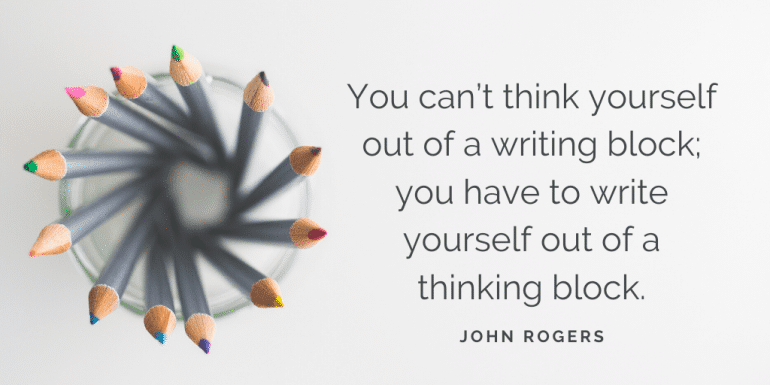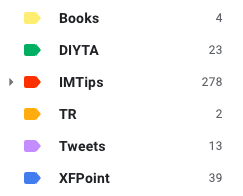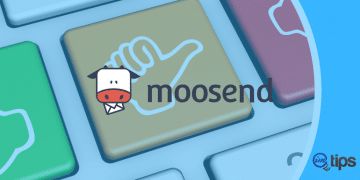What is writer’s block, what are the primary reasons for it happening and finally how to overcome writer’s block once and for all

Writer’s block is every writer’s nightmare. Sooner or later, it happens to every writer. Kinda inevitable. The one who can overcome the initial writer’s block is the ones who become super successful bloggers and writers.
The critical point here is to realize how do you overcome it—things that you do during the blockage matters than everything else.
Writer’s block is a part of every writer’s journey. Hence, before discussing the solution, let me walk you through the problems.
What is Writer’s Block?
Writer’s block is a state of mind where the writer is unable to write. It feels like an inability to write.
He/she gets stuck at a point.
It is the process of growing up as a writer and part of every writer’s writing journey.
It is psychological than physical because your hands aren’t tied up, but your mind feels so. It’s just that you don’t feel like writing or whatever you are writing, and you don’t feel like publishing.
Immaterial of the reason, writer’s block is agonizing. Many writers give up writing or blogging if they don’t find a way to overcome it.
What causes Writer’s Block?
There are numerous reasons for writer’s block, but it varies from person to person. However, there are some very common pointers I would add here.
Time
Time is a critical factor in writer’s block. The reason why you are not writing is you think it’s not the right time yet.
Maybe you need a little more time to bake the ideas already in your mind. This way, you keep pushing yourself successfully not to write then.
Although “I don’t have time to write” is an evergreen excuse by writers who are in the block mindset. It is one of the surest ways to know if you are in a writer’s block mindset or not.
Fear of Failure
As a blogger, when you don’t have many readers initially, you can blog very freely.
Once the blog in readership, the blogger is bound to become conscious of what he should and shouldn’t be writing about.
The fear the existing audience won’t like the content or topic can move the blogger into a writer’s block.
We fear criticism, failure, and setbacks. It holds us into the backwaters of writer’s block – one of the most common reasons why people don’t blog. Even if they write, they don’t publish, and over time the writing spirit fades away.
Motivation
Motivation works like fuel for a writer or blogger who starts blogging. It continually adds much-needed power and energy to keep doing things consistently.
At times when there isn’t much feedback, we may run out of this fuel.
One needs good self-motivation to keep doing things for a long time.
Self-Discipline
It’s very easy to lose yourself in the thought and the banter and to forget that we have to write. We start writing, ignite creative thinking, and BAAM!
In the back of our mind, we are like, “ok, I can do this after an hour, it’s easy”. And the next moment we are on WhatsApp, Snapchat, Facebook, or Instagram. The focus disperses immediately.
The way we lose valuable time on unproductive stuff, and it doesn’t end here.
Subconsciously we keep reminding ourselves that the writing part is natural and can be done later on.
Unfortunately, the “later on” never comes.
Perfectionism
Perfectionism is a bug that can induce a writer’s block. As a blogger, if you want every post to be perfect before hitting that publish button, you will soon hit the writer’s block for being excellent in the first shot.
There is always an option to edit a post. So even if things are not perfect, one can make them perfect with time.
How to Overcome Writer’s Block?
No matter what we do, to overcome the writer’s block, one has to write. There is no second way of overcoming it.
However, the process we will use here will help you write. Still, the way to overcome the writer’s block is the willingness to write.
Hence, I have compiled a list of a few ideas I practice for my good. Here you go:
Eliminate Distractions
Distraction is a broad term and integrates a range of stuff, aka smartphones. It’s a distraction. You are working an essential piece of content, and your smartphone buzzes.
What you do is pick up the phone, unlock it, and lose yourself into the never-ending loop of browsing. The simple technique is to just keep it out of your sight but reachable so that you can attain important calls, if any.
The same is with the Internet. Once you open the browser, you again lose yourself into the realm of email, social media, youtube, and whatnot. The trick is to cut down the Internet while writing. I use IA Writer, but if you don’t prefer an app, the next best thing is notepad.
Change the Place or Environment
Change pours in a new energy. Even changing the usual place of writing will summon the muse.
Try a bean bag and laptop for a while. Skip the traditional desktop and desk setup. It works for me and will work for you too.
The word environment here refers to changing the cliche old daily routine. Now that can be the regular place where you have been writing for ages.
Write at a Different Time
If changing the place doesn’t work, change the time when you write.
Try writing at a different time. If you were writing in the morning, now try evening. If you were writing late at night, try being a morning person.
The whole idea is to experiment.
Or it could be the timings like you were writing for an hour and now experiment for 15 mins slot or vice versa. Whatever it is, experiment with it for a while to see if things change for the good.
Just write, Don’t publish
Write because you want to get over the blockage. It can be anything.
I have a habit of writing without any editing in the first place. Let the ideas from the brain flow into the notepad.
Yup, I don’t edit the first lot.
Sometimes, I don’t even read what I have written. The idea was to get the keyboard ticking. So I wrote because I wanted to write.
Hence, without any kind of anticipation, just start writing.
Write Structurally in Bullet Points
When you hit the writer’s block, typing even a tiny sentence seems like a big deal.
You get shivers down your spine when you think of writing pretty long and elaborated content. The way to get back to writing ways is to write, and bullet points help a lot.
It works.
Writing in short bullet points will help your creative blood flowing.
Bullet points are short; hence they lay a psychological impact on your mind. You would be like, “oh, that’s easy. I can write ten more points.” Moreover, you will save yourself from the anxiety of writing great stuff.
Read, Read, Read
Realize that the problem may not be in writing, but there are no more thoughts in your brain to write.
There’s no exercise better than reading to overhaul your brain muscles. Reading is a game-changer. Imagine a writer’s brain as a bucket full of creative ideas. The ideas soon diminish once he/she writes. It needs to refill, and reading can work magically here. Reading not only reloads your empty bucket but also gives you a new dimension to look at things differently.
Reading empowers and helps you thrive out of the block like a real winner. I have tried this, and I can say I love reading more than anything. In short, there’s nothing beyond reading.
Let the First Drafts be Imperfect
Perfectionism is a crime for a writer. One can always improve over time.
After blogging for a decade, I improve my writing with each passing day. Moreover, I have an option to enhance my old articles for sure.
As an example, here is my AWeber review from 2009, which is updated every once in a while. If I had hoped to write the current version in 2009, the article would have never been published.
FreeWrite (Write Something Else)
FreeWrite is a great way to write out of the writer’s block.
The process is to write anything based on a prompt. It can be anything from a story to a childhood vacation. Google for prompts for writing and choose a prompt to write.
Then, write to the prompt with a timer and no distractions – 15 to 30 mins of timer where you only write without any distractions. Even disconnecting the Internet is recommended.
The trick works for sure. You have hit the writer’s block. There’s nothing that could provoke you to type even a single word.
Still, when you have a prompt, it is easy to write. Just try it.
The importance here is to keep yourself up with the writing practice every day.
Edit Instead of Write
For me, the writer’s block is often the topic block.
As a blogger, when I published around 100+ articles, the new topics become too repetitive. So editing the existing article instead of writing helps me replenish my basket of topics.
Later on, as my blog grew, I created a new email account for topic ideas. It has topic ideas of all the articles I want to be writing about.
Have Topic Ideas Handy
Once I have the topic ideas, I seldom get into the writer’s block.
As of today, after publishing 500+ articles, I have more than 275 blog topics that I want to be writing for BizTips.

I have tried everything from note apps to todo lists, and nothing works. Later on, I found a simple trick of emailing myself.
However, if I am emailing to my primary email, managing becomes a hassle.
So I created a new Gmail email for topic ideas. Moreover, Gmail has a beautiful feature where I can use a + in the email to address, and yet it is delivered to the same email address.
The email address topicideas@gmail.com is the same as topicideas+imtips@gmail.com.
So for each blog topic, I can create a label and filter, and items organize themselves in the inbox.
Now I can email any topic idea that comes to my mind anywhere, and they keep accumulating in my topic idea email. Whenever I want to write, I open the email, and topics flow in.
Additionally, having a separate email helps me avoid checking the primary email when I want to write. Checking primary email can mean I am drawn away from writing and answering emails.
Stop Being on Social Media
Social media can fill your brain with a lot of unwanted shit, especially memes. One needs to have a very clear head to write, but social media can add a lot of noise in your head.
Moreover, social media can be a time killer, as well.
However, as a blogger, often interacting with your followers on social media can help. But one has to make sure the interaction is entirely for the blog and for a limited time. Otherwise, one can get lost for an elongated time in the world of social media.
Bookmark Topics (Including Social Media)
I prefer reading at night. Many a time I am reading content online on my phone. If I like something about a topic, I email it to make a note.
As I am taking the note, I like to keep things as detailed as possible because, at times, I may not come to that note for months. The notes are not only for the topics, but for numerous other things that I intend to do as I am reading and generating ideas or even options, I like to experiment or implement.
I like to keep the process of taking notes as simple as it could be, and nothing is more straightforward than sending an email.
I am always alert for topics that I can write on BizTips. When I am working for clients, I want to write about it without violating the NDA of my clients.
Apart from working, I am also alert when I am discussing with my peers, partners, or even family members to take a note of topics that I think can be a potential article for my blog readers.
Ask Readers (Interact with Them)
One of my primary sources of topics is my blog readers.
I provide multiple points where my readers can interact with me, including Ask Me Anything. It helps me generate topic ideas for my blog reasonably quickly. They tell me what I should be writing about.
It is a two-way process where I know what my readers want as well as help me with topics that I can write about.
If your blog is not so popular, you may not see too many questions from your readers. Moreover, if you don’t have a list of subscribers, it becomes difficult to email your readers and asks them what they want more from you.
Use sites like Quora for questions that people ask, and you can answer them as blog topics.
Apart from QnA sites, you can follow other popular blogs for questions in comments that are being floated to them that you can answer.
Read an Inspiring Story
Warren Buffett is a great inspiration for me in investing and otherwise as well. I have applied whatever I learn from him in many aspects of my life, including the 9 Lessons I Learned about Freelancing From Warren Buffett.
Similarly, when I am feeling low or don’t feel like writing an inspiring story gets the adrenal pumping and gets me to write.
I have shared some of those stories and inspiration as I took from Jack Ma or Sachin Tendulkar.
Writing need not Always Be Digital
In the book Steal Like an Artist, the author Austin Kleon has a digital and analog desk. The analog desk is doesn’t have a computer. It is all old school paper and pen desk. The digital desk is where he has a computer and is used for editing and publishing.
One can always shut down the computer and still write.
Freewrite typically doesn’t need a computer.
Do Something Else
Apart from the above list, I have suggestions for a few physical activities. Take a look:
- Go for a walk or run. (my daily routine has morning walk)
- Play games. (I prefer playing strategic games)
- Listen to music
- Watch your favorite series. (I do it often)
- Brew some coffee. (my personal favorite)
- Spend time with family.
- Hang out with an old friend.
You won’t overcome writer’s block by:
Certain activities have a higher risk of leaving you failed. Kind of anti-solutions to overcome writer’s block. You can’t overcome writer’s block by
- Waiting for the inner voice to tell you when to write.
- Having self-pity to enter the writer’s block.
- Thinking how what and when to write.
- Procrastinating or making silly excuses.
- Binge-watching series like a couch potato.
Final Thoughts
Reading yet another article on how to overcome writer’s block will not help. You need to write, and it is the only way to overcome it entirely.
So now, start writing.

